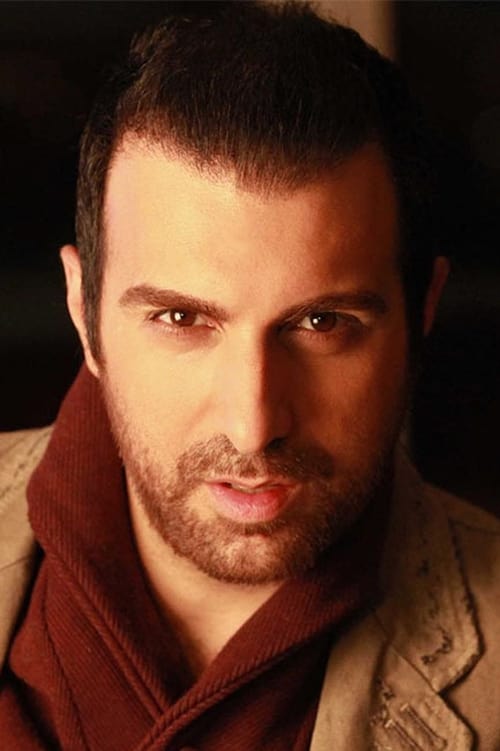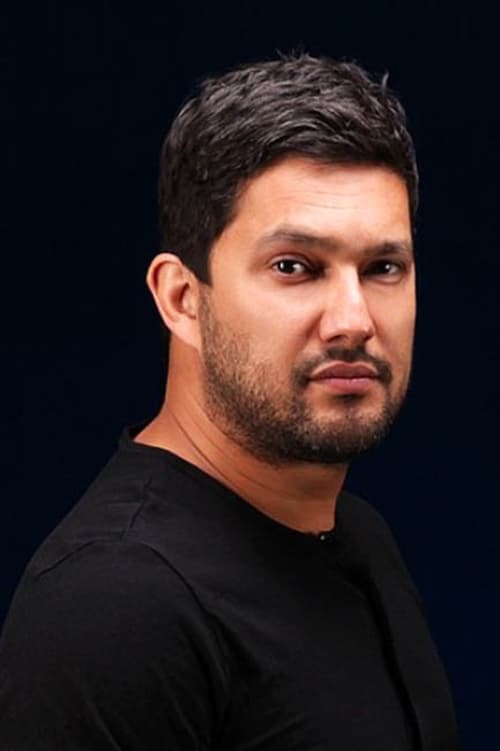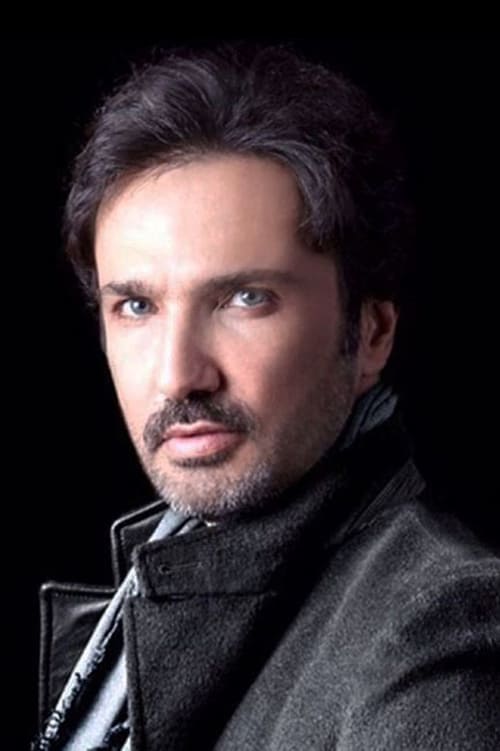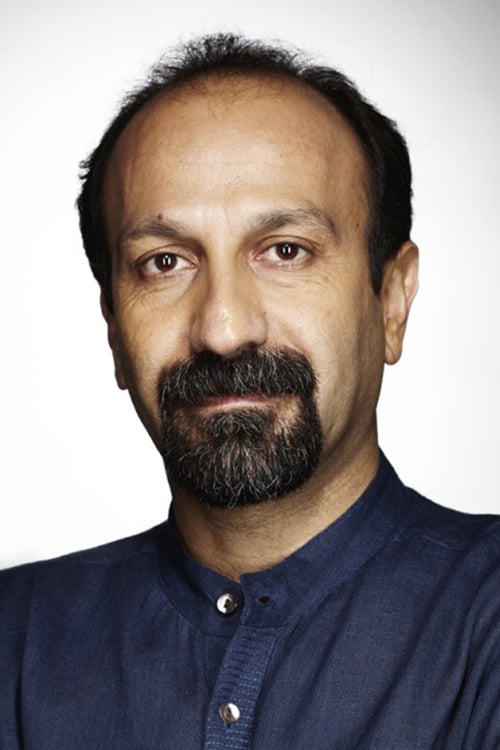Trial on the Street (2009)
ジャンル : ドラマ
上映時間 : 1時間 38分
演出 : Masud Kimiai
シノプシス
Just a few hours to his wedding, Amir, a lad from the south of Tehran, receives a call from his closest friend Habib who insist on meeting him to speak about an urgent issue. He rushes to Habib's works place and there listens to Habib's devastating claim that his future wife is not the sexually innocent girl he believed. In a mixture of rage and bafflement, he takes the bride to the wedding place and then departs to reveal the truth about her past. At the same time, a guy named Nekooyi, the owner of a broken company gets stabbed by his friend who seems to have an affair with his wife, Nasim. To get to the airport and leave the country they take a taxi, driven by nobody but the guy sought by Amir...

An official is sent from his home in Tehran to hear the final appeal of a woman sentenced to death, a political prisoner. The official's wife of nearly 20 years, Fereshteh Samimi, writes him a letter to read when he reaches the hotel - the story of her student days during the revolution of 1978. We see the story in flashbacks as he reads: she leaves her province on scholarship, joins a Communist youth group, avoids arrest, and comes under the sway of a suave older man, Roozbeh Javid, a literary-magazine editor. As she tells her husband about the hidden half of her life, Fereshteh asks that he listen to the woman facing execution, a woman and therefore one of Iran's hidden half.
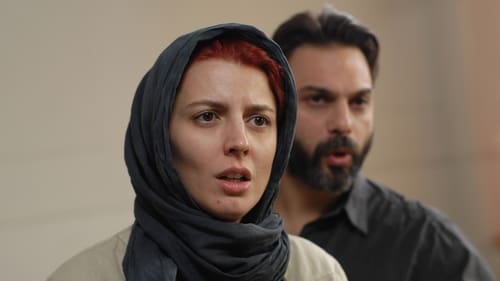
娘のためにイランを出ようとする妻と離婚協議中のナデル。同居中である痴呆症の父を世話するためラジエーという女性を雇うが、思わぬ事件が巻き起こって……。ミステリーとイランの離婚問題を交錯させた秀逸ドラマ。

A mother's courage, hardship, and love, in times of war. In 1988, during the Iran-Iraq war, Gilane escorts her pregnant daughter, Maygol, from the relative calm of their village, Espili, into war-torn Tehran to search for Maygol's husband, Rahman. The journey is arduous and what they find when they reach the capital is dismaying and frightening. Fifteen years later, as another war begins in Iraq, Gillane is at home caring for her son Ismael, who suffers from epilepsy, a byproduct of war. As she cares for him, she hopes for a visit from the doctor and from another daughter, Atefah. "Better be a dog than a mother," she says.

Kurdish-Iranian poet Sahel has just been released from a thirty-year prison sentence in Iran. Now the one thing keeping him going is the thought of finding his wife, who thinks he's been dead for over twenty years.

This twisted Iranian narrative follows a mysterious couple from Tehran as they distribute large bags of money in an impoverished mountain border town. Beginning as a black comedy, the film's mood transforms as the games played by Kaveh (director Mani Haghighi) and Leyla (Taraneh Alidoosti) become increasingly perverse, as they find inventive ways of humiliating the recipients of the cash. The immorality of the central characters is at times sickening, and their chain of lies is often as puzzling to us as they are to the townsfolk depicted onscreen. What is the relationship between the pair and why are they giving away money to the needy? Modest Reception has no easy answers nor pat resolutions - instead Haghighi takes the viewer on an intriguing ride into the dark recesses of the human spirit.

A sensation when released in 1999 in Iran, Two Women charts the lives of two promising architecture students over the course of the first turbulent years of the Islamic Republic. Tahimine Milani creates this scathing portrait of those traditions - aided by official indifference - which conspire to trap women and stop them from realizing their full potential; the inclusion of frank depictions of domestic violence was hailed by many as a breakthrough in dealing with a long taboo subject.

Nahal is around thirty and in her fourth month of pregnancy. During a routine check-up she learns that her baby has died and she now faces a curettage abortion in two days’ time. When she tries to address the subject, neither her mother nor her husband give her a chance to speak.

A hacker group empty a bank account of a big strong person. The story goes on and now they must pay for that.

Forough is a middle aged woman whose husband has temporarily married with another woman. Even though that was kept secret from her, but his action is considered legal in Iran. Now the husband is in prison, due to not being able to pay second wife’s “Mehrieh” (the bride’s marriage portion).The second wife intends to receive her Mehrieh by asking the court’s permission to sell his house. Forough, the first wife, in order to not lose her home, intends to sell all she has to pay for her husband’s debt and release him from the jail.

The uneasy relationship between a mother and daughter is made all the more turbulent by drug abuse in this downbeat drama from Iranian filmmakers Rakhshan Bani-Etemad and Mohsen Abdolvahab
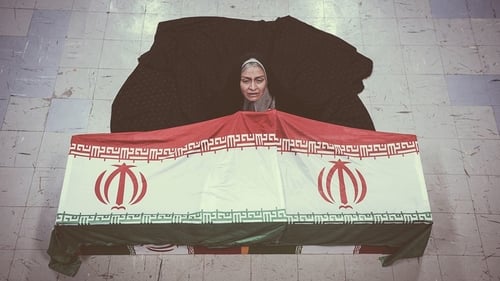
Olfat is raising her children in hardship. She has one daughter and one son called Yonos who works in Kerman copper mine. One day, she finds a note at home with this massage "My friends and I are going to enter the war as soldiers". After reading this note, Olfat and his friend's parents got worried about their sons. When operation Valfajr failed, they received news about Yonos's friend. Olfat is waiting for her son too. As she finds out that the Iraqi radio announces the Iranian captives' names, she ties a radio on her back and carries it everywhere.

During a demonstration, with the assistance of a man named Manouchehr, Fereshteh succeeds to get rid of the security forces. After victory of the revolution, they accidentally meet each other and consequently get married despite disagreement of Fereshteh’s family. Coming back from the honeymoon, they are encountered with a new situation altering all the peoples’ lives. The men should go to the war front for defending their country after the invasion of Iraqi Army to Iran.

Spanning 18 years in an Iranian women's prison, this follows two women: the new prison warden, a tough as nails devout Muslim who has served in the army on the Iraqi front, and a young midwife, Mitra, who is serving her sentence for killing her mother's abusive husband. In the early years, Mitra is repeatedly punished as the warden tries to break her. This includes punishment for delivering a baby in the prison cell while all of the prison staff has taken shelter during an Iraqi bombing. The warden's attitude starts to change after 8 years, when Mitra tries to protect a new inmate from rape at the hands of her older cellmates. When the baby comes back in 1991 as a 17 year old delinquent, Sepideh, the warden respects Mitra enough to protect the girl.

The advocate for a young Iranian refugee held in detention. Amir Ali claims to be an Iranian student persecuted by the government but the Department of Immigration dispute his identity. When Julia meets Amir, he is severely depressed and close to deportation. Julia throws herself obsessively into Amir's case, causing friction between Julia and her husband, Peter. Julia eventually frees Amir and the young Iranian man moves in with Peter and Julia. As Julia helps Amir adjust to ordinary life, she finds herself increasingly attracted to this handsome, damaged young man. But she also starts to see the subtle cracks in Amir's story. Is he really who he claims he is? Or does he have a darker, more dangerous history?
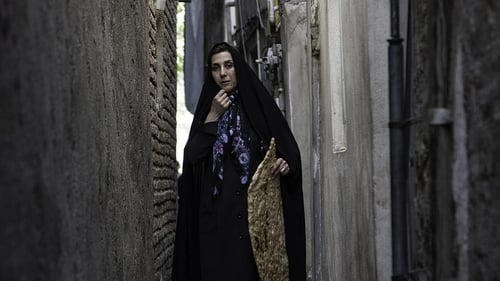
Award-winning Iranian filmmaker Rakshan Banietemad ends her eight-year hiatus from feature filmmaking with this ingenious, mosaic-like narrative, which knits together the stories of seven characters to create a microcosm of Iranian working-class society.

THE BRIGHT DAY weaves a story that has its roots in the complexity of Iran’s draconian laws governing capital punishment. A kindergarten teacher hopes to aid the father of one of her young students, a man accused of manslaughter, by convincing each of seven reluctant witnesses to come forward. No one lacks a hidden agenda in this drama in which shades of truth collide with self-interest and the specter of payback. (Gene Siskel Film Center)

Behzad, who has been in prison for manslaughter for a long time, has a son who does not know about him. When he is introduced, the son goes through a conflict. Then, as a family, they go to the victim's family seeking consent so Reza would be released.

A haughty acclaimed newly married fashion designer named Iraj is shown the door by his boss after the boss's son arrives at Iran to take over his father's company. Iraj reluctant to promulgate the loss of his job, starts using his savings, trying to conceal the truth from his naive wife. Having squandered all the money he had on trivial matters, he tells his wife about being axed & that's when the tables turn on him.

The renovation of a rambling family homestead becomes a metaphor for an unexpected assault on traditional family values when a newly married twenty-something brings her architect husband to draw up the plans for her aunt and uncle’s rehab job.

A Tehran mullah-in-training struggles to take care of his ailing wife and their children in this profoundly moving melodrama. A film of near-universal appeal, it puts a human face on Iran's Muslim clergy with its unusual tale of a man forced by hardship to become a better husband and father. Seyed Reza has just moved with his family to Tehran so he can study the Koran, and he relies on his lovely wife Zahra to look after their two young children and weave the intricate rugs that earn them a living. But one evening Zahra collapses and is taken to the hospital, where she's diagnosed with multiple sclerosis. Scarcely able to process the tragedy, Seyed is left to cook, change diapers, walk his daughter to school and take his toddler son with him to his classes, where peers and elders treat him with scorn. But Seyed eventually learns to cope, his prayers and devotional studies taking on deeper meaning as he attends to the hard nightly work of rug weaving, getting through with a heavy ...

